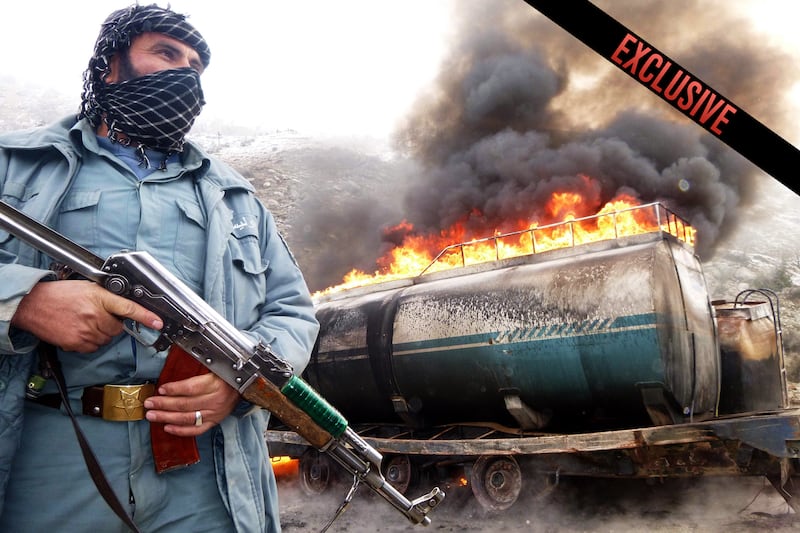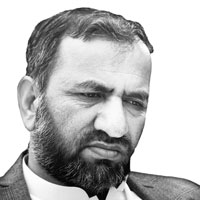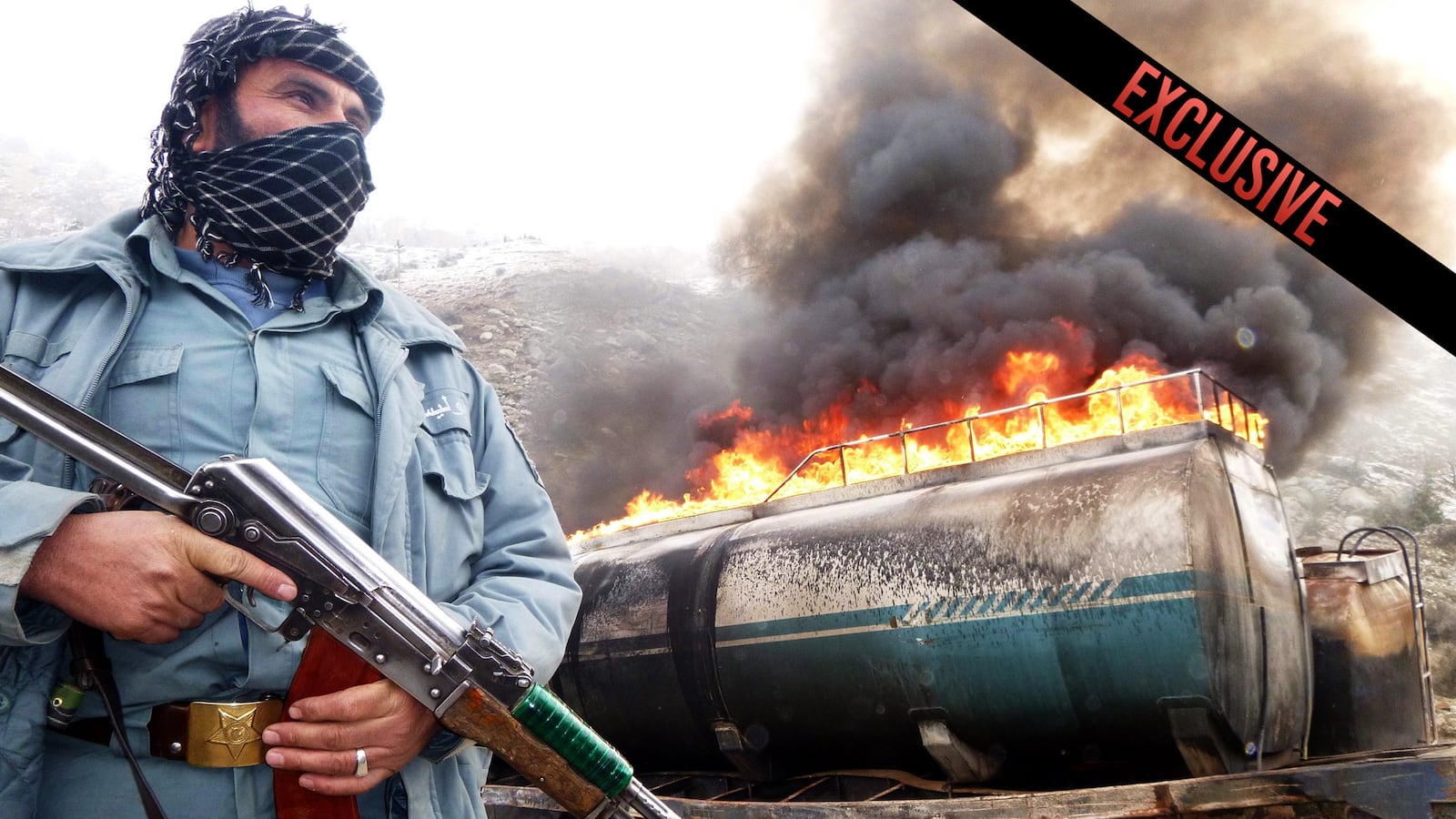A serious power struggle has broken out among the Afghan Taliban’s top leaders. According to details gathered by The Daily Beast over the past few days and confirmed by multiple well-placed sources, the two top-ranking members of the Afghan insurgency’s ruling council, the Quetta Shura, are battling each other for control—and according to at least one source, their feud has already resulted in the assassination of one senior Taliban official by members of an opposing faction.

The center of the storm is the Taliban’s top military leader, the former Guantanamo detainee Mullah Abdul Qayyum Zakir. Years ago he earned a reputation as a merciless fighter on the battlefield, but fellow insurgents say that as a commander he’s often brutal to underlings and he seems incapable of responding quickly to changing conditions on the ground. Recently the complaints from senior commanders in the field have risen to crisis levels. According to both a senior member of the ruling council and a former cabinet minister in the Taliban regime that ruled Afghanistan until the 2001 U.S. invasion, commanders accused him of showing no respect for his men in the field ground and ignoring their basic needs.
For the past two months he has also ignored the Quetta Shura’s meetings. Last week the leadership council gathered in Pakistan near the city of Peshawar, and Akhtar Muhammad Mansoor, a longtime rival for control of the insurgency, called Zakir, asking him to attend and if possible to address the commanders’ complaints. Zakir merely ignored the invitation.
The meeting took place anyway, and Mansoor took the occasion to declare his own control over the whole insurgency and to announce the dismissal of many commanders who had been appointed by Zakir. The sacked officials included Sayyid Ala ud-Din Agha, the overall commander of the insurgency’s southern front; Mullah Ruhul Amin, the chief of the military council for Helmand province; Daro Khan, the shadow governor of central Daykundi province; and Mullah Abasa, the head of the Taliban’s medical division. “All of them were members of Zakir’s faction,” says the former minister. “Now we’re waiting to see how Zakir reacts.”
It seems likely that Zakir will respond in much the same way as Mansoor Dadullah did five years ago, after he was canned as commander of the forces that had been led by his late brother, the notorious Mullah Dadullah Akhund. He demanded proof that the order had come from the Taliban’s supreme leader, Mullah Mohammed Omar. There was no proof. There has been no confirmed sighting of Omar since he vanished into the Kandahar mountains 12 years ago amid the chaos of the 2001 invasion. “Zakir would say the same thing,” the former minister predicts. “He would say, ‘Only Mullah Omar can remove me, and unless I have verifiable proof, I will not step down.’”
That’s the basic problem. In the Omar’s absence the Taliban have no indisputable lines of authority. “The Taliban were distinguished by their unity, but now each top leader is promoting his own loyalists and his own faction,” says a former member of the Quetta Shura. “It’s making the Taliban very much weaker.” The organization has been deteriorating ever since Pakistan arrested Omar’s second in command, Mullah Abdul Ghani Baradar, in early 2010, and subordinates including Zakir and Mansoor began jockeying for power.
They derived their authority from having been appointed to lesser positions by Baradar in Omar’s name. “The Taliban formula was that anyone who has been appointed must be followed, regardless of his ability.” Things inevitably fell apart. “That formula worked when Mullah Omar was our operational leader,” says a source who was a high-ranking official in the regime’s Culture Ministry before the 2001 U.S. invasion. “But how could it work now that he is neither dead nor alive?”
Some insurgents blame Mansoor as well as Zakir for the Taliban’s setbacks. Both men have failed to gain territory in the southern Afghan provinces of Kandahar and Helmand. On the contrary, they have lost control of former Taliban strongholds. “Since the situation on the ground has not improved in the Taliban’s birthplaces, they’ve started pointing fingers at each other,” says the former cabinet minister. “Now things have reached this stage.” To make the situation worse, he says, none of the other current leaders have any outstanding abilities as military commanders or as leaders.
An all-out fight between Zakir and Masoor could cripple the insurgency’s top ranks. Zakir is a fearless and impetuous fighter, a former Guantanamo prisoner who earned a reputation for brutality on the battlefield. “If Zakir stays true to form, this could get like the 1980s, when the mujahedin were killing each other in Peshawar and Quetta when they weren’t fighting the Russians,” says a former Taliban diplomat.
In fact, he says, the internecine warfare has already begun, with the broad-daylight assassination of a senior Taliban leader last month in Quetta. “Shahid Khel was shot by the Taliban themselves. It was tied to the struggle between Zakir and Mansoor.” Taliban sources say Mansoor has more administrative ability than Zakir and is comparatively reasonable. They also say he’s more inclined toward peace talks than Zakir—but he still sees things in typically black-and-white Taliban terms.
The power struggle’s repercussions have reached all the way to the gulf state of Qatar, where the Taliban’s peace negotiators still await further orders, many months after the insurgents abruptly canceled their talks with the Americans. According to the former minister, the Taliban’s lead negotiator, Sayyid Tayyab Agha, has submitted his resignation to the Quetta Shura, but the ruling council has been too tied up with the fight between Zakir and Mansoor to accept or reject it.
The delay may be just as well for Agha. Some members of the leadership are charging that he bungled his assignment in Qatar. “He didn’t stay in his office and residence,” complains one well-placed source in the Quetta Shura. “Most of the time he just disappeared. Either he was looking after his pharmaceuticals business in Doha, or he was holding secret meetings.” Others accuse him of saying one thing to the Americans and another to his superiors in Quetta. A friend of Agha’s says the Taliban leadership was to blame. He says the negotiator was sent to Qatar without clear instructions, and his communications to Quetta effectively went unanswered. “He kept telling the Americans he would give them an answer to their proposals, but he couldn’t keep his promises,” the friend says. “For Agha, the only thing to do was to resign.”
Meanwhile the role of chief Taliban peace envoy—such as it is—has passed to another senior insurgent leader, Maulvi Shahuddin Dilawar.
He too was at the leadership council’s Peshawar meeting, and he joined in the criticism of Agha. Now he’s on his way to Paris for unprecedented talks with the Taliban’s longtime enemies from the Northern Alliance, which toppled Mullah Omar’s regime in 2001 with the help of overwhelming U.S. airpower.
The insurgents’ basic problem is that the group has never had any set criteria for choosing its leaders, the former Culture Ministry official says. “There is no sense of leadership,” he says. “That’s why the Taliban has no political future.” In fact, he predicts that it has no future at all.
“Yes, the insurgency is still going, but it’s like a runaway camel. In the end it will fall into a pit. This is why they lost Afghanistan in 2001, and I expect they will very soon lose control of what was a successful insurgency.”
He says the Taliban’s longtime sponsors in Pakistan are preparing to break off their support of the insurgency. “Pakistan is sharpening its knife to remove the Taliban like a cancer from its body,” he says. “The illness has already spread to Pakistan.” Thousands of Pakistani security forces have been killed fighting the so-called Pakistani Taliban, a home-grown insurgency with strong links to al Qaeda. Until now, the Afghan Taliban and the Tehrik-e-Taliban Pakistan have remained separate, although TTP units have often crossed the border to join the Afghan Taliban in a jihad against the Americans. That could change if Pakistan severs its ties to the Afghan guerrillas, some insurgents are warning.
But no matter what happens next, it’s not likely to end well for the Afghan insurgents unless they can somehow pull themselves together. “I would suggest to my friends and former colleagues that this is the last chance to change their minds and convert from a military force to a political force,” the former Culture Ministry official says. “Otherwise the Taliban will be history.”





